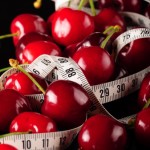Successful Weight Loss For Life
There are many ways to lose weight, including a myriad of different diets, each with a specific goal. When deciding on a basic diet for your weight loss, you may find that there are several theories about what you should, and should not, eat. Indeed, your food intake will largely be determined by the diet you choose.
Most popular diets will fall into one of four major categories: low fat, low carbohydrate, high protein and vegetarian. Low fat diets involve reducing your fat intake and calories. There are more than twice as many calories in fat as there are in carbohydrates or protein, and since high fat diets are linked to many diseases, a low fat regime has value even beyond weight loss.
Low carb diets (also called reduced carbohydrate", controlled carbohydrate", or "low glycemic" diets) are eating plans that advise limiting the consumption of foods high in carbohydrates. High protein diets are often recommended by bodybuilders and nutritionists to help build muscle and lose fat. Emerging research has hinted that protein may be able to satisfy hunger better than either fats, or carbohydrates, and therefore can be part of particular weight loss plans. Becoming a vegetarian does not automatically mean that you will lose weight, but eating a large amount of fresh fruits and vegetables will definitely help with weight control.
Trying to discover the secrets of diets and fat loss, you will soon realize that there is no one size fits all." Everyone has to find their own T-Shirt, the one that is tailor-made just for you. Like anyone else, you will have to sit down and determine how you want to approach your goals. Are you interested in a fast weight loss program, or do you want to take it slower, with less drastic habit changes? Is it a quick-fix you want, or a new lifestyle, maintaining a great body and high energy levels? Or, will weight loss improve your health?
In today's world, with all the various fast food temptations, weight loss is a necessity for many overweight people, especially if they are sickly. Overweight related health problems can include diabetes, heart disease, high blood pressure, high cholesterol levels, or high blood sugar. For patients suffering from such conditions, even the smallest weight loss can help improve their health status.
Keep your diet approach realistic, regardless if you are starting a three-day quick weight loss diet, or are content with losing moderately each week. Check with your doctor to see if your health status allows lowering your caloric intake, or if you experience side effects from your diet. Avoid common mistakes such as not including exercise in your diet, skipping meals, weighing yourself too often, forgetting that drinks may have calories, or deluding yourself about what you have eaten. If you diet and are still not losing weight, it may be good to keep a food diary. Add up the amount of calories consumed in a day and compare the result with your diet plan. You may be surprised to see how many 'hidden' calories you forgot!
Inform yourself about the different diet plans available today. If you want to be successful, follow a healthy, balanced diet, which should include at least five servings of fruits and vegetables a day, along with whole grains, lean meat and low fat dairy products. Add physical activity, which can start by taking the stairs at work, walking up or down an escalator, dancing when you have the music on at home, exercising while watching TV, or parking at the far end of a parking lot instead of driving around for the closest spot.
There are many ways to lose weight. Keeping the weight off is less easy and may require minor lifestyle changes. The key to successful weight loss is modifying your eating and physical activity practices in such a way, that you will be able to carry them on for the rest of your life.
Related Articles
-
This HIIT Workout Will Get You Lean & Toned In 12 Minutes
-
The Whole Grain Face-Off
(HealthCastle.com) We all know
-
Four Painless Ways to Lose Weight Immediately
I recently refined some eating and drink
-
What Is The Best Weight Loss Program Out There
What is the best weight loss program out
-
5 Natural Weight Loss Tips For A More Beautiful You
Living a powerful, healthy, fit and trim life is a true goal for many
-
Exercise Speeds Up Weight Loss
Most people join the gym or begin their
- DON'T MISS
- The Secret to Successful Weight Loss
- I Need to Lose Weight: Is Exercise Enough?
- Fast And Easy Weight Loss Using Diet Programs And Diet Pills
- Are Embarrassed of Your Overweight?
- Six Tips for Losing Weight Quickly
- All About Computer Recycling
- Winning at Weight Loss & Healthy Lifestyle Habits
- Calorie Counting: Five Common Mistakes & How to Avoid Them
- How To Improve Your Health In 14 Days Small Changes For Maximum Health Weight Loss
- Ear acupuncture boosts weight loss




